
Most of you know I swear by my twelve pressure cookers. Thanks to my mother, I’ve come to adore and use this old-school utensil for just about every meal that comes out of my kitchen and onto my table.
Growing up, mami and both of my abuelitas used them consistently and always emphasized the benefits of cooking with them. They save a lot of time in cooking your everyday staples, in our case, rice, beans, lean cuts of carne and some desserts. They also double as a regular pot if used without the jiggler or pressure regulator.
It took no time for me to be sold on its practicality and efficiency.
But mami also warned about its potential dangers and seldom allowed me in the kitchen while she was cooking. Mami only had two pressure cookers and both were vintage models. In fact, one of them, which she still uses is from the very late 70s, the year we came to the U.S. from Havana. Those vintage ones are about original as they come with no safety valves and no guards that can protect against explosions. Yes, explosions!
For many years, pressure cookers haven’t been popular for that very reason: cooks were afraid of possible explosions. If you speak with any Latin family, you are more than likely to hear a vivid recount of beans splattered all over because the top went jiggling off. And indeed, those accidents can occur. I vaguely remember one such incident with black beans in our VA home. Fortunately in our case, the jiggler wasn’t on the lid so the built up pressure was minimal. The beans did thrust out at what I would guess was 25mph and covered our kitchen ceiling with mushy frijoles. The more important thing is that no one was hurt.
But an elderly South Florida woman was not as lucky two weeks ago. The story which had me in shock, was of a 78-year woman whose pressure cooker fell on the floor and exploded. Unidentified parts of the pressure cooker severed one of her legs from the knee down. But not for her son’s ability to put a tourniquette on it, the woman probably would have bled to death.
¡Pobrecita!
(newer model with jiggler but auto-lock feature, something the one below does not have)
Is this a freak accident? Yes, no doubt, but it can happen if you don’t know how to properly use a pressure cooker — a vintage one at that. I’m a huge proponent to the use of pressure cookers and encourage serious home cooks and professional chefs to consider trying them out. I’ve been successful in convincing at least 20 friends to acquire one. But, they’re still not as popular as I think they deserve. New ollas de presión have been redesigned to be safe for every day use and are equipped with features its vintage counterpart never had. In most cases, new pressure cookers no longer have jigglers or detachable pressure regulators. New models have an auto-lock feature that prevent opening the lid until 100% of the built-up pressure is released. Old ones allowed for premature opening, which is what more than likely is to blame for serious accidents.
In Latin culture, cooking as of early morning is way of life. Slow cookers are not common in Latin homes so the pressure cooker was/is the go-to pot. Those staples I mentioned above are cooked every day in just about every Latin home I know. And those beans, most beans actually, are cooked in a pressure cooker for expediency and relative ease.
While I don’t know nor want to assume the injured woman is Latin (though based on her name and her pressure cooker contents–beans–I can make an educated guess that she is), it might be safe to say she’s been using pressure cookers for some time.
Reports state that the pressure cooker fell off the stove.
Assuming the cooker did fall off her stove and assuming she was using a vintage pressure cooker, I’ve decided to revisit some points that will make your experience a safe one. Following are some key notes I urge you to keep in mind if you’re new to pressure-cooking; especially if you’re using an older model.
{added note! I’m by no means discouraging you from using these wonderful piece of equipment. I just want you to expand your options when cooking and be safe when doing so! That’s all.}
1. Read, read and read the manufacturer’s manual until you are clear on the instructions. Most manuals come in two languages. 2. Contact the manufacturer if you have any additional questions or are unclear on how to operate it. 3. Never leave a pressure cooker unattended. 4. Never, under any circumstance try to open the lid until all of the pressure has been released. If your pressure cooker has a jiggler, remove it after the pressure is all out and then open the lid. If you don’t know how to tell if pressure is out, you can check by slightly tilting the jiggler and allowing it to escape. You’ll hear a hissing noise (the steam) diminish as pressure reduces. If all of the pressure is out, you shouldn’t hear any hissing at all. 5. If you’re lid is not easily opening, that’s a good sign there’s still pressure in the cooker. Do not try to force it open. You can run cold water on it to do a quick release; but again make sure all of the pressure has been released. 6. If your pressure cooker is at full PSI and is moving around the range, it could mean you’re over-working it and that you’ve exceeded PSI. Immediately remove it from heat and walk away until you’re comfortable approaching it. There’s no need in taking a chance. 7. If all this fails and you’re unsure, do not use a pressure cooker unless you are 100% comfortable and have read the manual.
Mind you, these tips mostly apply to older models that allow for premature opening and do not have auto-locks, etc… You should still use precaution when using new ones, but to my knowledge there have been no reported incidents with newer cookers.
I love my pressure cookers and will continue to “lobby” and push for you to use them! They are a fantastic piece of lost cooking art and a great tool for the cook that loves to take advantage of healthy meals that can be made in 75% less time than conventional cooking.
I’ve written some introductory posts on pressure-cooking which I invite you to read here and here.
And of course, feel free to email me b {at} brenherrera {dot} com if you have any specific questions I may not have addressed here!
!Buen Provecho!

Eat well, love unapologetically, pray with true intention, and take care of yourself.


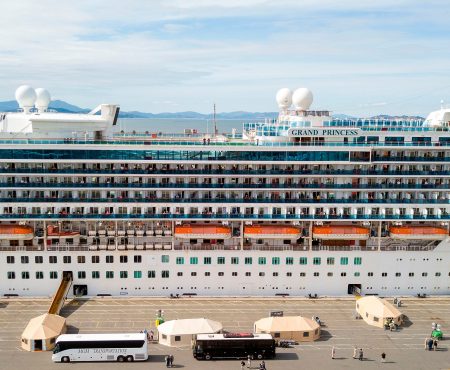


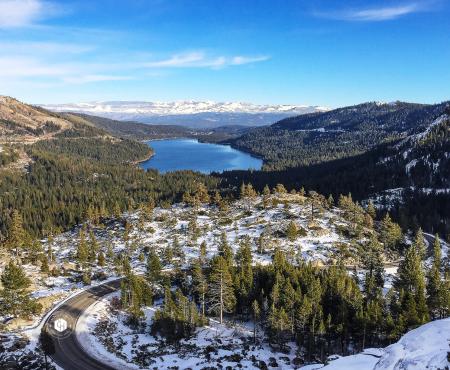
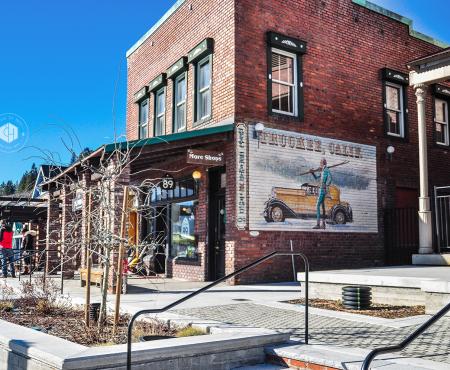
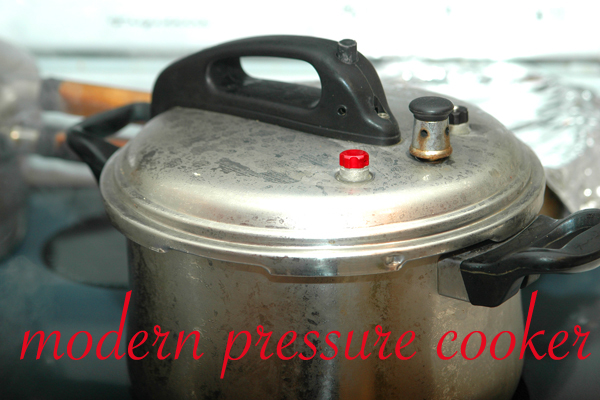




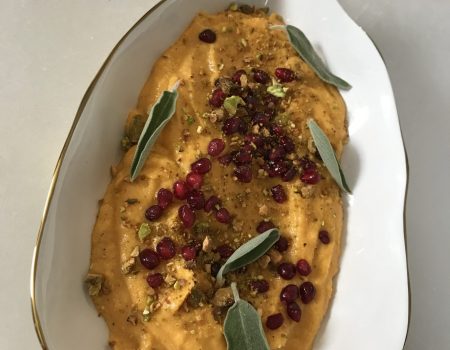
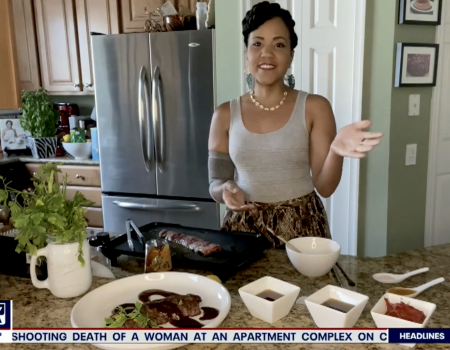

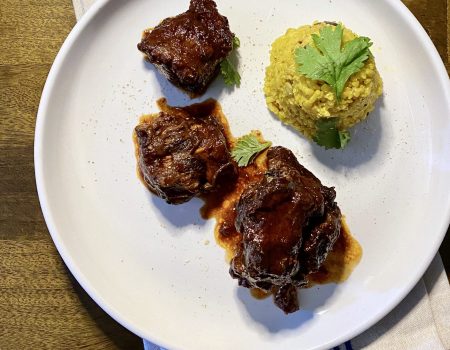


53 thoughts on “Pressure Cooking Safety Tips Revisited After South Florida Woman Loses Leg in Explosion Accident”
I really have to buy one… My Swiss grandmother cooked a lot with her pressure cookers.
Cheers,
Rosa
I don’t currently use a pressure cooker but I have in the past. I think this is a great post — with the pros and cons. I heard about that woman on the news. Pobrecita!
My mother-in-law moved her pressure canner before it was fully depressurized. The canner slipped, dropped, and popped open. She was “only” scalded badly. So for larger pressure cookers/canners, I’d add “Don’t move it until the pressure has dropped completely.”
Definitely need to get a smaller pressure cooker someday.
Rosa: Yes, girl, you really do! They’re amazing. It’s really all I’ve known when it comes to cooking. Let me know when finally break down and get one!
JoanNova: Oooh, I was gonna say. I was going to be surprised if you told me you’ve never used one! 🙂 thanks for chiming in on the post! pobrecita for sure. I hope she recovers well.
Jason: oh my goodness!!? She did recover well? how terribly sad. I do move my pressure cooker into the sink but only on certain occasions and if I feel completely comfortable doing so. I have all the way from 4-15 qt sizes. Love them all.
Recovered with time, thank you! This was a 23qt pressure canner, so a bit bigger. The handles on the inexpensive ones are on the small side. You can use them to pressure cook large quantities, although neither we nor the in-laws have.
I’m still not sure I trust my red beans and rice to a faster method, though. But I also don’t trust them to a slow cooker. 😉 Do pressure cookers still extract all the goodness from bones?
Jason: I love these kinds of questions! Thanks for coming back. I have a Ball canner (it that’s what you’re referring to) but I’ve not used it for canning or even pressuring pursposes. In fact, all of the canners I know have always used pc’s… When you say a faster method to cook your red beans and rice, what do you mean? Cans?? If you make them in the pressure cooker, they’re done in 45 minutes top–and that’s even with dry beans. I’ve never had to soak dry beans when I pressure them. I cook them on high for about 30 minutes, make my sofrito (changes depending on the bean), release all pressure, add sofrito and then cook for an additional 15-20 mins or so on medium (with pressure). As for meat, def will retain flavor but also vitamins and nutrients. If you consider that you’re cooking in that much less time, that’s less time any of your seasons have time to evaporate. The amount of heat and pressure keeps everything super tightly sealed in the pot so there’s no escaping of all that goodness. Use flank steak as an eg…. I put it in there and it’s super tender in about 30-40 minutes. I just do a simple brine and it’s just about ready to eat just that way. The in order to make something more elaborate like “carne ripiada” or “ropa vieja,” it needs to sit in the respective sauce for some more time… hope this helps. 🙂
8. Always operate the pressure cooker on the back burner of your cook-top.
9. Never leave the handle sticking out of the stove.
10. Never exceed your pressure cooker’s maximum capacity (usually noted with a little dash inside the pot) for cooking liquids or go over half the maximum capacity for cooking grains/beans or any other food that expands during cooking.
Thanks B for making and sharing this list!
Ciao,
L
I had NO idea you had that many pressure cookers! I still don’t have one. I’m not afraid of them (but that story is scary) but just haven’t gotten around to getting one. I should think about it, right? I’m trying not to crack up over the image of beans on your ceiling
We’re canning addicts. A smaller cooker wouldn’t handle the amount of chicken stock we tend to can at once. 😉
But for the question, I more mean to ask about extracting all the collagen from bones. Does a pressure cooker extract enough from the bones to make a good demi-glace, for example?
And I always soak my little red beans. Lowers the, um, less socially acceptable aspects for me…
es triste lo que paso .pero yo uso olla de presion desde que era una nina mi mama me enseno a usarla y nunca en mis 48 anos que la llevo usando nunca he tenido problemas ,es lamentable que le haya pasado eso .pero las ollas de presion si la sabes usar te ahora mucho tiempo un la cocina .yo se la recomiendo a todas mis amigas e hijas en fin a todo el que pueda es muy practica y muy conveniente .gracias
Lamentable accidente, gracias por alertarnos de los peligros y darnos consejos para nuestra seguridad al usar las ollas a presion, excelente trabajo Bren.
Laura: Thank for the additional tips. It’s so wonderful to see other young woman using them. Now if I could only get the guys to use them, too! 🙂
Kelly P: As much as you cook, you should definitely get on the ball and buy one! I think you’d particularly like it a lot! Pls. let me know if you do!
Jason: Canning is in fact great but I’ve not done it in a loooong time. I have all the equipment to do it but I’m so caught up with pressure-cooking and not really in preserving foods. About the collagen, no, it doesn’t extract enough. However, it really does depend on how you’re cooking it. Because cooking meats usually requires a generous amount of water, the amounts extracted are minimal. In my experience cooking chicken, red meat, especially oxtails, I’v been able to get a good amount of “jelly” which I have used to make stock. Generally speaking when cooked at the highest PSI (15) then you can get a good amount. I hope I’ve answered your question!
Betty: Gracias por tu input. Es muy sabio lo que compartes con mis lectores. Si unicamente mas gente les interesare usarlos. Estoy en eso, though!
Juanita: Y gracias a ti por haber leido el articulo. Deverdad que quisiera que mas gente los usen, pero que tambien sepan de los precauciones que deben tomar.
Thank you for a great post reminding your readers that an ounce of prevention can be worth … well, a leg; I really feel sorry for the old lady and grateful that a quick-thinking son saved her from further physical damage. Yes, read, read and then read again the instructions, and then be extra careful. Modern pressure cookers are a lot safer and definitely a super efficient way to make your life in the kitchen a lot easier.
Growing up in Brazil, we were exposed to pressure cooker and I love the one that I have. Indeed they can be very dangerous if you do not how to operate it. Thanks for such an informative post. Have a wonderful week Bren 🙂
Exploding pressure cookers! Ack. Had no idea that was even an issue! This is a good post, though, because no doubt there are people who may be equally as clueless about the potential dangers.
Bren, I grew up with the vintage cooker and watched two explosions in my family. So, imagine how afraid I am of them. Both, of course, were human error, but my fear is real, girl.
However, you have nearly convinced me to get a new one!
Love this post. Will share with the Tiki Tiki-ers.
I remember one time when I was a kid when someone was babysitting us while my mom ran out to the store. The first thing she told them was not to touch the pressure cooker because she was making some Frijoles Negros. Sure enough.. they opened it while it was under pressure and BOOM.. black beans all over the kitchen. It was a royal mess. Be safe with those pressure cookers!!!
I need to start using my pressure cooker more often. Great stuff!!
That’s pretty serious. At least I know your always careful. Your a master!! And do you really have nine pressure cookers?? I don’t think I knew that.
I’ve always been leery of pressure cookers. This did it for me. I don’t have room for another pot and I am just in no hurry to cook that fast. I think I’ll stick to my cast iron dutch ovens and slow cookers.
oh my goodness!!! what a scary story! poor woman. i wonder how experienced she was. ive always wanted to learn how but my mom never used one and i’ve never really seen one in person. just have heard about them. maybe you can teach me how to use one!?! hee.
I haven’t found one that I feel comfortable with. My mom uses hers all the time but she has a very safe one!
I don’t get to use my pressure cooker that often but there are a few Jamaican dishes that require it. I need to use mine more.
I love my pressure cooker, but understand that they are dangerous especially the older models. I have both an older and newer model. I found a place online that helped me replace parts on my old cooker that the manufacturer of it had updated to make the cooker safer for use (it was much less expensive to do this than it would have been to get yet another cooker). So definitely check your cooker and call and find out about it if you are unsure whether it is updated and safe.
I saw your pic of the thirty year old pressure cooker…..it’s wayyyyy older than that! My mom has used one of those all of my life. I can remember it as a very small girl….listening to it swish, swish, swish away. I loved it! She has also used it as a candy making pan….that’s my favorite! Fudge, pralines, peanut brittle are the best when made in “mama’s pan”. I’m 58 years old and my mom found me one at a garage sale in years past…I also use it to make candy.
I disagree with one respondent’s comment. Pressure cookers since the 1910s have had either a mechanical safety popoff valve or a metal or rubber “safety fuse” that will relieve pressure if allowed to get too high.
The modern cookers just have added a second rubber plug and usually a gap in metal lid rim for the rubber gasket to blow out the side. Only an idiot would try to open a cooker under pressure so the plastic handle locks (if the manufactures were serious they wouldnt use plastic) are just marketing gimmick.
One VERY IMPORTANT safety (IMHO) the modern cookers dont have is a gauge. I dont want to listen to whistles or watch jiggies spin, or otherwise guess in case I have been distracted for a moment. I want to be able to glance at the gauge and immediately know whats going on. Come on modern manufacturers, stop trying to save $3 and give us a gauge so we can be safe!!!! Also most modern cookers are made in China (even the ones with American company names), and we all know how absolutely insistant Chinese factories are on high quality and safety! And how little they are concerned on saving a extra fraction of a penny on every product. Yeppers those modern cookers are so much safer…. LOL!
Seriously all PCs that were designed and maintained structurally sound, are safe, if one has modicum of common sense. When cooker gets to pressure, turn stove burner WAY DOWN to where it just is adding enough heat to maintain the desired pressure. It takes very little. My two antique cookers, I have gas burner turned to where the flame is just barely visable and that easily maintains 15 psi by the gauge. (One came with gauge, I added gauge to the other) The jiggler just barely twitches. With heat imput limited to such a temperature-pressure equilibrium (look up Gay-Lussac Law in your old physics textbook), the cooker simply isnt going to over pressurize no matter if all safety vents are plugged completely. The pressure regulator should be thought of as a secondary safety not the primary way to regulate pressure. The primary way is with the amount heat being applied to the cooker once its achieved desired pressure.
As to original story, it seems to have disappeared as these pressure cooker explosion scare stories seem to do. We are talking 15psi pressures max on pressure cookers. Less than half the recommended pressure in your econobox car tire. I have yet to see anywhere that using pressure cooker in kitchen will cause actual explosion with metal shrapnel sailing around the room wounding people or amputating limbs. At most the safety fuses open or the lid comes off and food contents escape and you could get scalded and have a royal mess to clean up. Hot food doesnt amputate body parts. And all such accidents are result of people not paying attention and properly turning down heat once desired pressure has been reached.
928790 151623New York Travel Tips […]below you will find the link to some web sites that we believe you must visit[…] 382732
tadalafil pills: http://tadalafilonline20.com/ tadalafil online 20
generic pills for ed meds online without doctor prescription
generic pills buy prescription drugs
viagra price viagra without a doctor prescription
how much is viagra
online doctor prescription for viagra price of viagra
best place to buy viagra online
viagra over the counter walmart viagra from canada
100mg viagra
viagra from canada buy real viagra online
п»їviagra pills
how much is viagra best over the counter viagra
when will viagra be generic
viagra 100mg price buy viagra online canada
when will viagra be generic
http://paxil100.com/ – paxil 10 mg
ed clinic
http://diflucanfavdr.com/ – diflucan tablet uk
natural ed medications
buy viagra online usa https://viagrapills100.com/ cost of viagra
п»їviagra pills https://viagrapills100.com/ 100mg viagra
100mg viagra cost of viagra
where to buy viagra online
buy ed drugs cheap ed pills
ed pills online
buy ed pills carprofen without vet prescription
cheap ed pills
http://zithromaxst.com/# zithromax generic price
http://zithromaxst.com/# order zithromax without prescription
http://prednisonest.com/# prednisone price australia
https://hydroxychloroquinest.com/# hydroxychloroquine plaquenil
https://zithromaxst.com/# zithromax capsules australia
https://gabapentinst.com/# neurontin price
https://zithromaxproff.com/# buy zithromax online cheap
zithromax 250 price
http://zithromaxproff.com/# buy zithromax online with mastercard
zithromax online usa no prescription
I needed to thank you for this very good read!!
I absolutely loved every little bit of it. I have got you saved as a favorite to look at new things you post…
https://www.cornbreadhemp.com/pages/how-long-do-thc-edible-gummies-last have become a go-to seeking me, present a convenient, tasty way to take CBD’s benefits. I appreciate how tactful they are, so I can take them anytime, anywhere. For one’s part, they’ve helped me reduce and improved my doze quality. I also like that each gummy has a jell amount of CBD, which makes it cosy to run down my intake. An eye to anyone interested in tiresome CBD, gummies order in the interest of a uncluttered starting point. Upstanding a baksheesh: go with a view a estimable name brand to secure attribute and effectiveness!